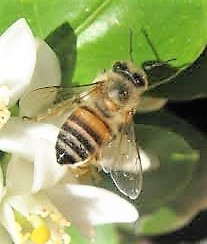Begins at the bombing of the USEmbassy in Tanzania
This blog begins at the bombing of the US Embassy in Dar es Salaam Tanzania in 7 August 1998. As one of four first responders I was very disturbed that with all our nursing and medical skills we failed to save many. Since it was impossible to save them, it was obviously going to be more effective to focus on prevention. I made a promise to those victims who included perpetrators (driver of the truck bomb), victims (guards at the Embassy), and witnesses (people waiting for visas) to follow this thought that is, to address the problem of how to prevent such violence logically, through research.
USEmbassy, Dar es Salaam, Tanzania, 7 August 1998. Photo from Association of Diplomatic Studies and Training. https://adst.org/2016/07/bombing-u-s-embassy-dar-es-salaam-tanzania/
This blog is drawing on 15 years of quantitative and qualitative research into ways of decreasing violence and increasing wellbeing in Tanzania, East Africa. We started gathering data in 2005, trying to understand first, who are those being killed and how and why – homicide?
The Problem
We learned that those most vulnerable for experiencing violence – as perpetrators and victims - are under-educated, under-employed/under-paid young men. We learned that many of these young men have dependents. The person snatching your handbag, cell phone, or clothes off the line is doing this dangerous deed for the benefit of those depending on him…grandfathers, mothers, siblings, partners, their own children – in a place where there is no government safety net. These are also the demographics of those who died at the Embassy that day. They are the demographics of most members of non-national armies
Even being sympathetic, it is very uncomfortable to live amongst constant thieving. Police presence is spare, so the community bands together to protect itself. Male community members become lynchers and vigilantes killing these young men, in order to protect the community from constant petty thievery, they warn the young man, they are patient to a point, but with no jobs to be had, the anti-social behavior often continues until the thief – the young man with no job and no money except for the subsistence he is stealing from them - is killed.
What can be done?
How can we decrease community violence and increase well being. We looked towards the data for guidance and noticed that some data are interesting but not useful in terms of intervention. Most variables can’t be changed including age, sex, history, religion, parents. Our data suggested that the most malleable variable is employment or occupation.
Therefore we conducted a pilot
study for an intervention trial (registered at https://clinicaltrials.gov/ct2/show/NCT04602416). Four groups of
young men from slum areas in Dar es Salaam Tanzania were given training
sessions of five days each about entrepreneurship and beekeeping. It worked! We
found that earnings and well-being increased, while violence decreased compared
to a control group which only received health sessions.
We carried the intervention into villages near government forest reserves in southern Tanzania. We gave traditional honey hunters sessions on beekeeping and entrepreneurship. We found that violence against bees decreased dramatically and honey production increased rapidly. The fresh problem then became that this excellent product was available but the market was becoming saturated by other producers and upcoming producers!
After harvesting, Ndechela would be sick for several days due to the beestings he sustained
And that is where we are now.
The research papers from our research group can be seen through Google Scholar and are posted at https://www.researchgate.net/profile/Anne_Outwater in the project folder titled Addressing Community Violence through Training: Entrepreneurship and Beekeeping.
For a more complete presentation see the You Tube:
https://youtu.be/3_zXV8Flfi0 #UVMCLI
#UVMrep #sponsored
Where we are now
This is where we invite you aboard this blog. We are preparing for a meadery in Tanzania. We will be using experiences learned in Vermont, USA one of the world’s hotspots for successful high-quality craft breweries and meaderies.
We are preparing research proposals to follow the bee and human workers and monitor their effects on each other. This blog will be about our safari, learning how to decrease violence and increase well-being by supporting young men at risk for violence, as beekeepers and entrepreneurs.
Developing label designs





Anne, this is very exciting. What will be the market for the mead in Tanzania -- local or export?
ReplyDeleteThanks Dan. We will serve local first. Honey wine is a traditional drink in many African countries, but as far as being commercially produced, I think only in Ethiopia, Ghana, and South Africa.
DeleteSooo proud of what you’re doing and your tenacity to get it done! Bravo for continuing to make a difference in the world, for both humanity and the beautiful bees!
ReplyDeleteBrilliant, Perfect, I love this. Bravo.
ReplyDeleteI am a big fan of your work, Anne, and look forward to following this amazing blog!
ReplyDelete